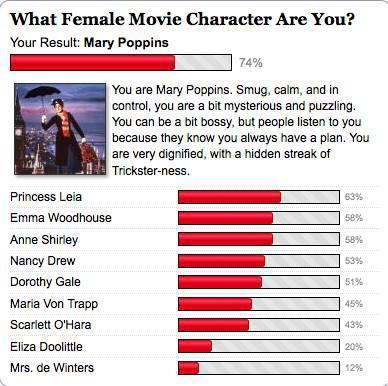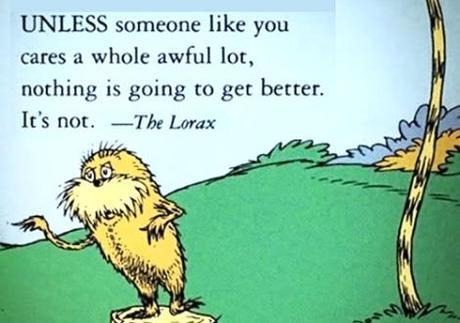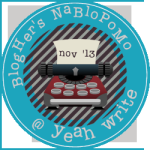I’m going to be exhausting right now.
Those of you who enjoy clocks but prefer not to think of all the things that go into making the gears work– you should skip this one. We’re about to get extremely gear-y up in here.
Those of you who are just here to show your support of my NaBloPoMo efforts are entirely excused as well. Love you much, you’re doing awesomely, and go team Poblano!
For those of you who have an interest in the e-book industry, or those who are curious about how the mind of a nitpicking-planner works, well then– read on, my friends.
___________________________________________
Hey there, and welcome. Grab your coffee and move in closer, because today, I’m going to lay down my plan for fixing the world of independent authorship. We’re going to cover a lot.
I’ve outlined it for your convenience:
- Why I Care, Why I’m Qualified
- The World of Indie Authorship is Broken
- Why An Elaborate Overhaul is Required
- The Proposed Plan – A Very Behind-the-Scenes Explanation of a Massive Overhaul
Ready?
Let’s do this.
__________________________________________
It Begins.
This all started when I read a post by Misha explaining that the e-book industry had fundamental flaws that were tearing it up from the inside out. Specifically, he mentioned that the e-book industry had a public relations problem– and that he didn’t have the marketing know-how to fix it.
I brought this problem to my husband, who I lovingly call the Solutionizer because there’s never a problem he can’t fix, and because this is a problem that directly affects his career.
He looked me straight in the face and said, “Well, it’s not really fixable. It’s just too big.”
This is a man who put together a successful week long independent film festival after I handed him a thousand tapes and said, “Tell me what I need to do to make this happen.” This is a man who makes things happen.
So why didn’t he believe there was a solution?
Simple. The problems were too wide-spread, and my husband is a writer and artist. Artists fix things on their own. The whole situation is reminiscent of the proverbial little Dutch boy. Plugging one hole isn’t going to fix it, unless– unless.
Unless 1,000 people plug one hole each.
This is where my fix-it skills come in.
You see, I’m not an artist. I’m a business woman, and we delegate and administrate. We put one thousand gears together and we make the clock move. It’s a confusing, complicated thing to witness and never sounds like it’s going to work out, but it usually does.

Actually, come to think of it, nothing says it better than the test results from this little online quiz. I’m qualified because of my tricky streak. Via http://www.gotoquiz.com/what_female_movie_character_are_you
After consulting with several other experts, I have a sort of plan– but first let’s get into why the problem Misha cited isn’t the only one that hole that needs plugging.
_________________________________
The World of Indie Authorship is Broken.
Independent authors have been pitted against much larger corporations for years, and they are losing.
Increasingly, as the movement of independent authors garner more strength simply by having more numbers, larger publishing companies and booksellers have been forced to show their hand and it’s exactly what you would expect.
They want to keep their jobs, even if it means silencing those who aren’t them.
There are reasons that this has been easy to accomplish. Let’s address them.
Reason 1 : Indie Means E
Independent authors suffer from limitations in funding. Even the best funded indie author is dead broke compared to major publishing houses. Physical books are expensive, on many levels. E-books are the means in which a young student in rural India, or a retiree in Wisconsin, or a mom from Southern California can put their story in your hands. In the world of physical books, major publishing houses will win every time.
The crisis comes in now because indie authors are even being pushed out the e-book scene. Every year, publishers put out reports showing an increase in revenue derived from their own e-book sales. This is a lower cost, bigger profit investment– and so they are moving into a field where indie authors previously had the majority. As they move in, they have even needlessly nudged small artists out with demands to maintain certain percentages of the spotlight major retailers have to offer.
Reason 2 : Indie Doesn’t Fit the Mold
E-books are a commodity, physical books are an art. When you walk into a bookstore, you probably don’t compare the page count to the price or read the reviews. It’s hard to avoid that information in an e-book environment. The information is so readily apparent that is often outshines the artistic nature of the book.
There’s also the problem that independent authors have erased the standard genres and started over. When you know your e-book will never see a major bookseller’s shelf, you worry less about finding a category in which it fits perfectly. This is great for the reader in terms of new ideas and content, but can play havoc with the basic structure of organization around which the industry revolves.
Reason 3 : Ignorance is Bliss
Knowledge is power, ignorance is bliss, and consumers are blissful. The average reader does not know which e-reader is best, so they may not own one. Of the ones who do, they may not know all the various places in which to purchase books by independent authors. They don’t know where to go to find a list of independent authors, and they don’t know how to tell what an e-book is all about or whether or not a book is worth the time and money.
Quite simply, it’s easier to buy big.
Reason 4 : Indie Rhymes with Spelling Errors
Most people associate independently authored books with reduced quality of writing. Whether that means a lesser design, spelling errors with the work, or just plain redundancy of ideas– it is a very real problem facing the industry. It’s made worse by the fact that these claims can often be true. Most indie books suffer from at least one of those problems due to lack of funding, and lack of professional resources. Even if 95% of indie books are of equal quality to traditionally published books– the fact is that’s still 5% more problems than a traditional publishing house would have. Consumers sense this as a risk and translate that into their cost benefit purchasing analysis.
_________________________________
We can’t just put a band-aid on, we need to stop and make repairs.
There’s a bright side to these problems– they are all incredibly fixable on their own.
The hard part is that we can’t just do one thing to fix this. A pubic relations campaign saying that e-books are worthwhile products isn’t going to do anything if no one knows where to buy them. Telling people where to purchase them does no good if people don’t know which to trust, or what genre something really is. Compiling an omni list of independent authors does no good if people don’t understand that authors are like small businesses– and critically important to support. And none of that matters if people are still using the guidelines of the normal book industry to define their perception of indie books.
The harder part is that all these things need to be done at the same time, in a coordinated effort.
So how do we make it happen?
We make a list of bite-sized jobs, and distribute them to trustworthy experts who are willing to invest in a world that they inhabit– one that depends heavily on the largesse and activity of indie authors.
Yes, bloggers, that means you.
_________________________________
A plan, which is practically perfect in every way.
This is going to sound complicated, and very possibly unnecessary, but in reality it’s just a series of very small, critically intertwined steps. I’ll explain both the needs and the whys as best I can. You’ll also notice that I have specific people in mind for these tasks, but I opted not to call them out by name because right now– this is just an idea in my mind, not something I’m set on implementing.
A Rating System
It all starts here. The book industry has been moderated by sheer capitalism and constrained distribution. When you pick up a kids book at Barnes and Noble, published by Penguin, you don’t need to read it to know it’s rated G. One of the downsides of e-books, and indie authored books specifically, is the unknown factor preventing the sale. There isn’t any indication of what a book should be rated.
On the bright side, this is an opportunity for the indie industry because we can redefine ratings. We can redefine what people care about– which is increasingly less about the use of a swear word, and more about content.
What we need is someone well-known for shaking the foundations of classic rating systems. We need someone with a mind that is open to perspectives on offense. Someone who can take the hits when people mock the system, because it will be the most questioned part of this entire plan.
A Genre Listing
Now, online selling has created a commoditization of books. It has also opened up books to the possibility of being in a wide variety of genres that far exceed the 17 shelves that you’ll find at your local bookseller.
Independent authors being given free rein in their work has encouraged the cross-genre nature of writing. It’s not uncommon to find a mystery noir romance that takes place in a dystopian future.
We need a listing of specific genres– a library style codex, organizing books by their specific genre.
For this, we need someone with mad researching skills and an understanding of library sciences. They will require minions in order to create a vast, easy-to-understand listing of categorization.
A Review System
We need to streamline and standardize review systems. There’s a million reasons for this one, but some of the basic reasons are as follows: (1) it will become an easy way to recognize a reviewer who is devoted to helping indie authors, (2) it standardizes reviews in a way that makes them seem valid once more, and (3) it addresses the major concerns of the reader.
Tentatively, I’m thinking a simple slider system identifying the major characteristics of a book would be most beneficial.
Plot 1 2 3 4 5
Characters 1 2 3 4 5
Value 1 2 3 4 5
Writing 1 2 3 4 5
______ 1 2 3 4 5
All this would generate a number that would simply rate a book on a standard 1 to 100% system. And wouldn’t it be nice if this slider review system was really as simple as moving a dial or pushing a button? Some coding and a talented coder could make that happen quickly.
A Brick-n-Mortar Allegiance
Indie authors are small business owners. Unfortunately, that’s not an easy association for a consumer to see, which is why we need indie bookshops to get behind this revision. Preferably, indie bookshops that have a presence in the blogosphere– which indicates a general willingness to hear authors and embrace the new. We’ll need to borrow the name of this bookstore and slap it on something that consumers can see.
If small cafes and such were willing to put up a sign or two, that would be awesome, too.
An Award Contest for Fiction E-Books
Now we have a contest, and we give it the name of a real life bookstore. The Specific Indie Book Store Indie Author Award. The contest is hosted on the same site that features the rating system and cataloging list. $1 entry fee, 4 rounds. Every author fills out a form, citing their genre and rating.
- Round 1 is popular voting, open to the public– based entirely on the cover, and the back blurb. “Judge a book by its cover”. This acts as way of maintaining quality concerns, and bridging the gap between the consumer experience in person and online. 3 days of voting.
- Round 2 takes it to the selection of reviewers, preferably GoodReads reviewers, who analyze a set number of pages of the authors choosing. They simply say “yes” or “no”, and they have to say “yes” to at least half. 2 weeks for the judges.
- Round 3 takes it back to the public. 1 randomly selected paragraph, pitted against others. 1 week of voting.
- Round 4 is the final round. 3 weeks while the blogging reviewers read the books in full and use the pre-approved rating system to send in their numbers. The numbers are updated as the judges have them. Everyone who makes it to round 4 get a portion of the total entry fees and donations. 5%.
- The winner takes home the badge and 25% of the total entry fees and donations. There will also be a list of “pledged” donations, and those people will be contacted with the name of the winner so they can live up to their pledge and download a discounted version of the winning book. The winner and the top 5 get a place on the bookstore site.
Reviewers
What is a plan to save books without book lovers? We need readers. Ultimately, that’s what this is all about.
We also need bevies of book reviewers. Some need to just convert to the review system, or at least use it at the same time as their current reviews. We need panel judges for the contest.
A Campaign
“Shop Small” did a great job of spreading the message of supporting small businesses. We need similar campaigns for indie authors. “I read out of the box”, or “Think Independently”, or…?
Then we need graphic designers to make it glorious and versatile enough to be put on blogs, printed on cards, and placed on signs.
We need easy-to-print press releases for competing authors to fill in the blanks and mail to their local papers, to be featured simply by default of their participation in the contest.
A Movement
And once again, we’re back to you. None of this means anything if people aren’t aware of it. If everyone shouts it to the rooftops and wears the badges proudly, the world will spread– but if no one does anything, we’ll all be left with nothing but a tree stump with one word on it.
UNLESS.

_________________________________
So, that’s my plan. I’m not really sure why I’m posting it at all, except that — well, I have a knack for this type of thing and I think it’d work.
I even ran the idea past a few bookstores including a big online one, who said they’d be happy to showcase the works of all contestants who made it past round 2. A few of the brick-n-mortars said they’d be happy to sponsor the award.
Not that I’m doing anything with it. I just had to write it all down so I wouldn’t lose the thought.
I spoke to one or two mainstream authors who said they’d love to support the movement, when it has a name. I called a few well-known book club organizations who said they’d definitely add the winner to their rounds, and a local magazine editor who said she’d love to do spotlights on indie authors but previously didn’t know where to start.
Not that I’m doing anything with it. I just wanted to test the waters.
Have you read an indie author recently that you really enjoyed? Do you have a favorite book reviewer? And not that I’m doing anything with this idea– but if I called upon you, dear blogger, to badge up– would you support the cause?
______________________________________




